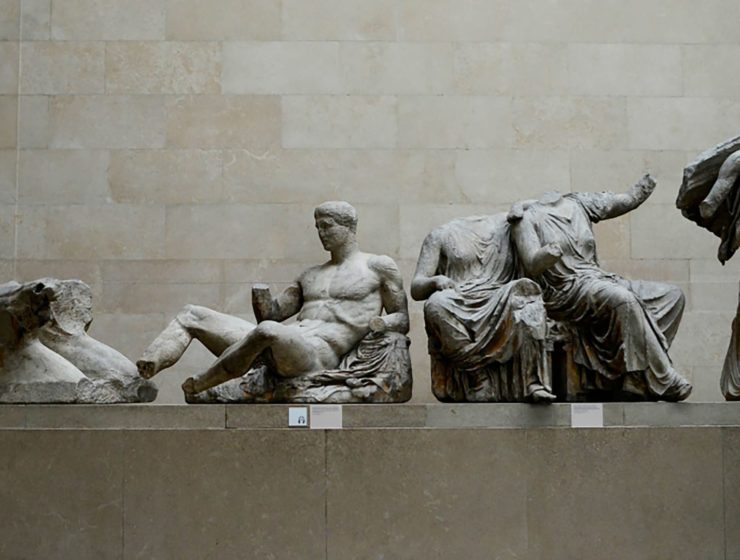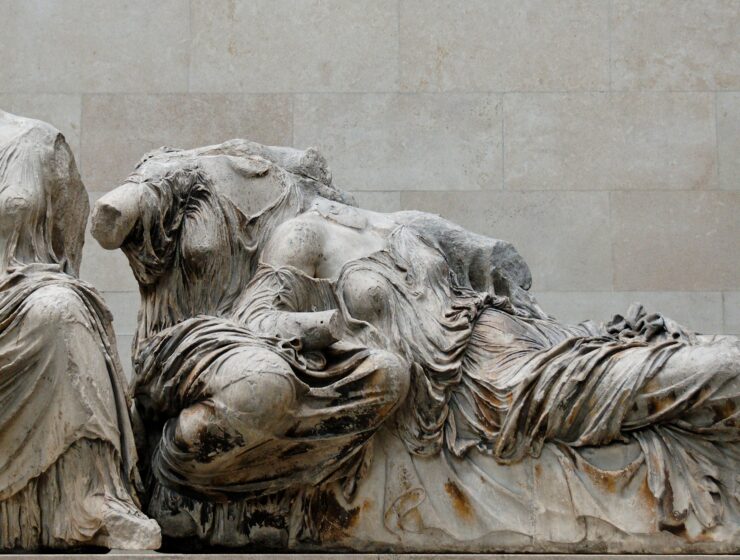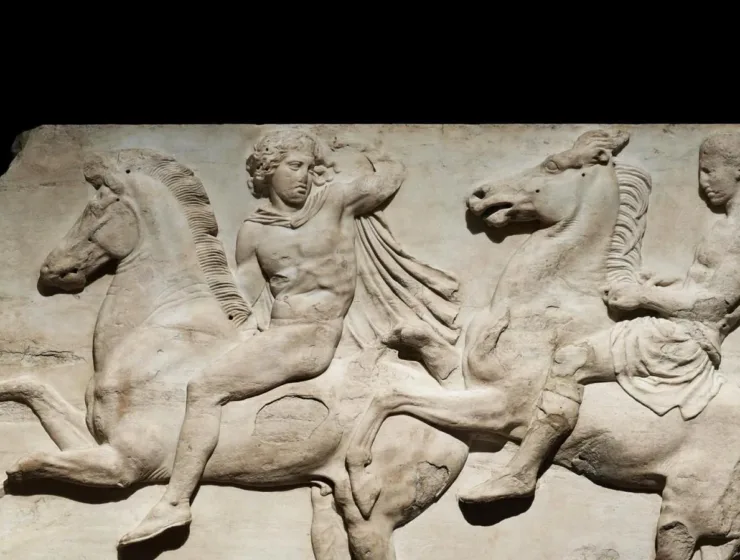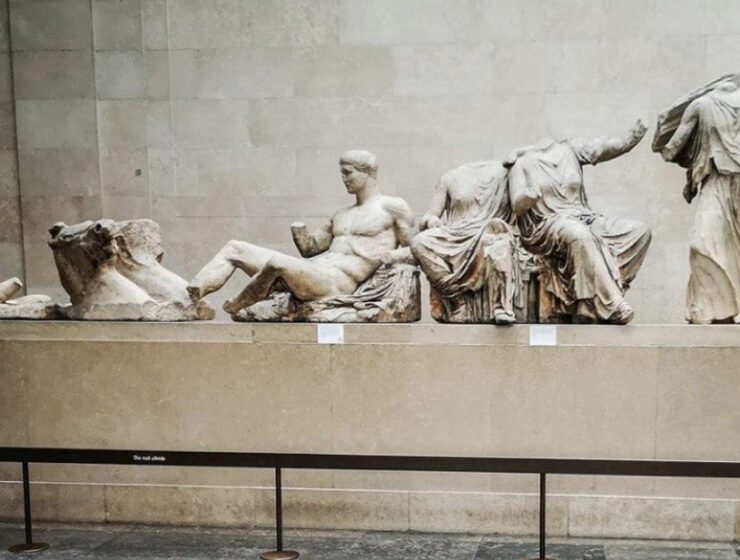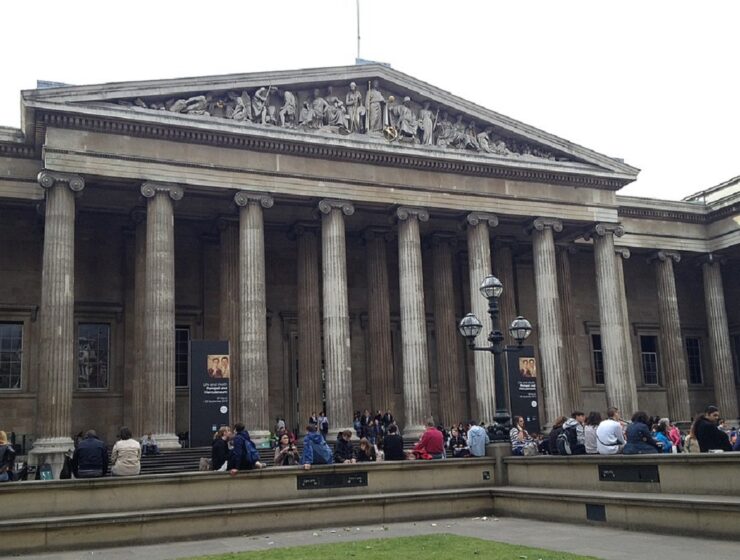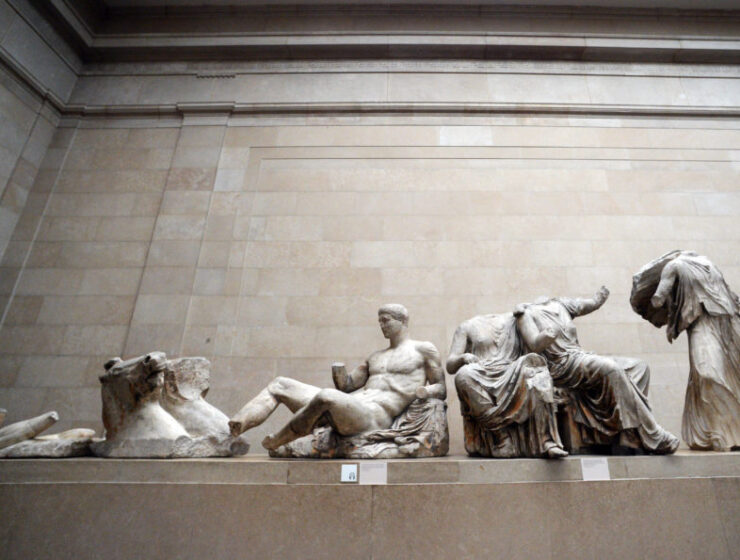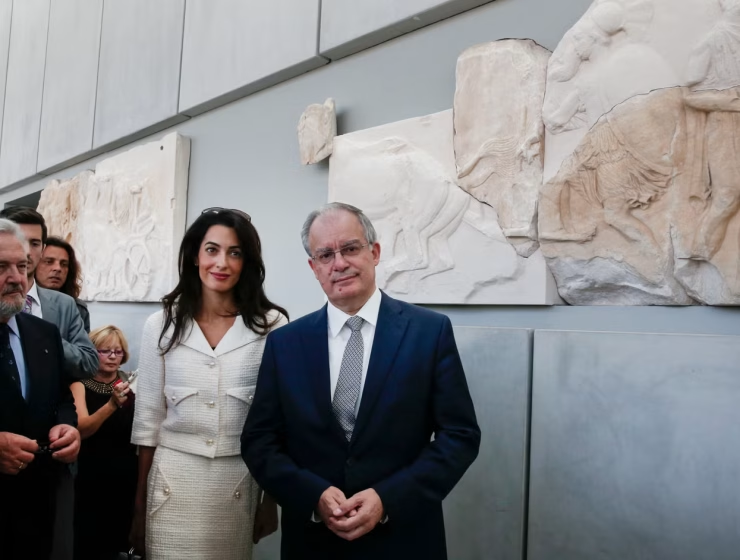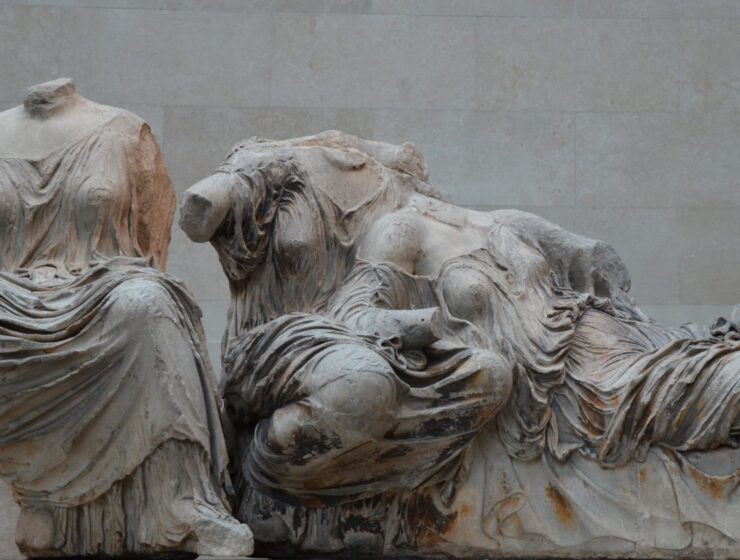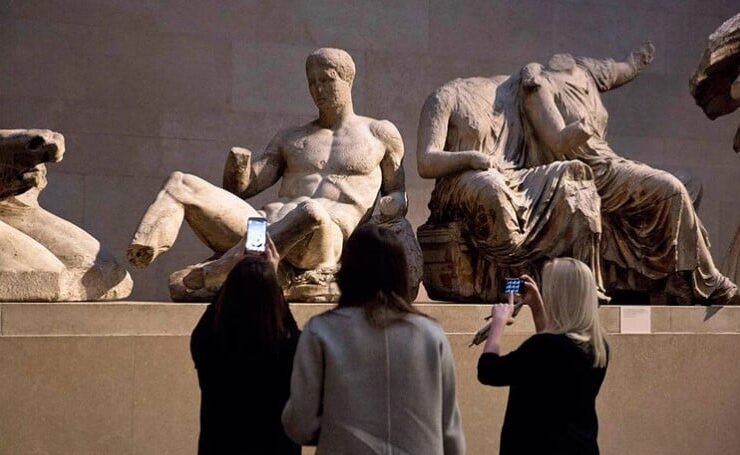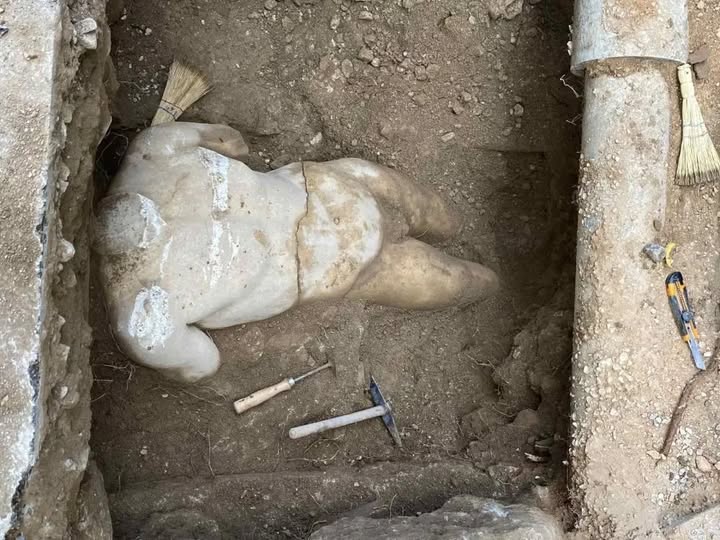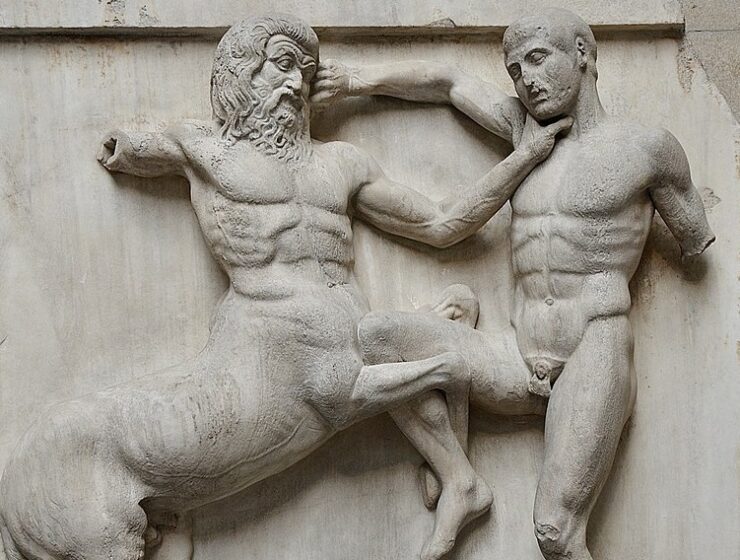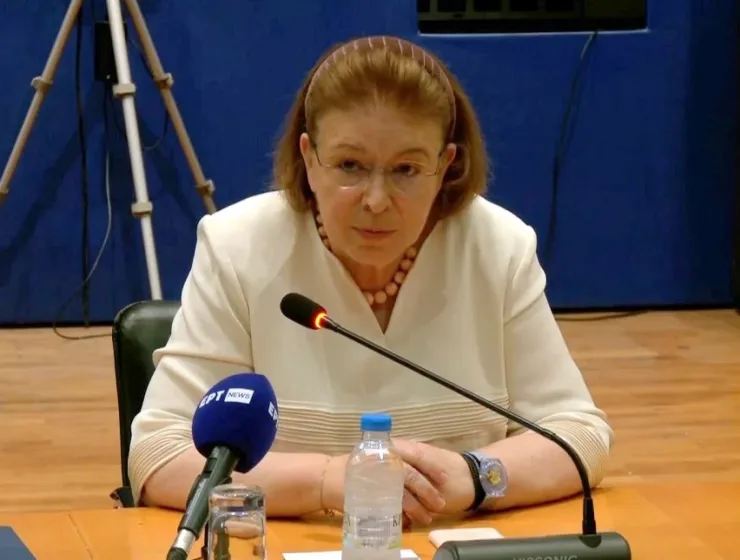British pop music icon Robbie Williams has added his voice to the ongoing debate over…
Tag: british museum
The British Museum’s new trustees, including anti-restitution author Tiffany Jenkins, step into a heated debate over the Parthenon Marbles. As Greece pushes for their return, the appointments signal a firm stance on keeping the ancient sculptures in London.
Negotiations for the reunification of the Parthenon Sculptures have advanced further than ever, with the reconstruction of the British Museum presenting a perfect moment for their return to Athens, where they belong, according to Marlene Godwin, chairwoman of the British Committee for the Reunification of the Parthenon Sculptures.
An ancient bronze griffin head, stolen nearly a century ago, was repatriated to Greece from New York’s Metropolitan Museum of Art on March 21, 2025. Now displayed at the Archaeological Museum of Olympia
Prominent British anthropologist and TV presenter Professor Alice Roberts has voiced her support for the return of the Parthenon Sculptures to Greece. Speaking while filming her new documentary Ancient Greece by Train, Roberts echoed Greek Minister of Culture Lina Mendoni’s call for repatriation, stating that the sculptures belong back in Athens. She emphasised the need to acknowledge historical injustices linked to colonial-era acquisitions, comparing the situation to how Britain might feel if pieces of Stonehenge were held abroad. The long-standing dispute over the Parthenon sculptures remains unresolved, though recent discussions signal progress.
Proposed changes to the Charities Act 2022, intended to ease the transfer of objects like the Benin Bronzes and Parthenon Marbles, remain stalled under the Labour government, despite earlier plans for implementation. As the British Museum escapes media scrutiny amid delays and past scandals, the unresolved fate of these cultural artifacts highlights tensions over law, heritage, and accountability in the UK.
The British Museum has just unveiled the winning design in an international architectural competition for…
Athens, Greece – In a historic move, Greek lawmakers have elected Constantine Tassoulas, a former parliament speaker and a leading advocate for the return of the disputed Parthenon sculptures from the British Museum, as the country’s new president.”
Renowned British actor Stephen Fry has reiterated his support for the return of the Parthenon Sculptures to Greece, speaking at an event at the Acropolis Museum in Athens. Fry, a longtime advocate for the restitution of the marbles, emphasised the sculptures’ rightful place in their homeland and called for cooperation between the British Museum and Greece’s Acropolis Museum. Highlighting recent successes in Greece’s efforts to reclaim the artifacts, Fry expressed optimism that a solution could be found through dialogue and mutual respect for cultural heritage.
The British Museum has closed its temporary exhibitions after a former IT contractor allegedly sabotaged its systems. The suspect, who was recently dismissed, was arrested on-site. This incident follows the recent revelation of approximately 1,500 missing items from the museum’s collection, raising concerns about security vulnerabilities and insider threats.
Optimism grows for the return of the Parthenon Sculptures to Greece as intensified talks between Athens and London gain momentum. Italy, particularly Sicily, played a pivotal role in reigniting the international dialogue, with the return of the Fagan Fragment setting a precedent for cultural collaboration and heritage repatriation.
Greece’s conservative government has nominated Parliament Speaker Constantine Tassoulas as the country’s next president. Tassoulas, a strong advocate for the return of the Parthenon Marbles, previously served as culture minister and played a key role in the campaign to reclaim the sculptures from the British Museum.
The video may be just a classic silly video from the thousands that are uploaded to TikTok, but it nevertheless shows that even in England there is a latent sense that they have stolen ancient artifacts from other countries, and that this is not ethically right. It also shows that in Greece, 222 years after the sculptures were removed from the Parthenon and placed in the British Museum, even the younger generations of Greeks have not forgotten and are asking for their return.
Confidential negotiations have yielded significant progress, though a formal deal has yet to be sealed.
Key discussions center on permanently housing the sculptures at Athens’ Acropolis Museum while offering major Greek artifacts for extended exhibitions in London.
However, the discussions envision that not all pieces removed by Lord Elgin will return.
The British Museum faces increasing pressure to return artifacts acquired through questionable means, including the Parthenon Sculptures to Greece, the Benin Bronzes to Nigeria, and the Rosetta Stone to Egypt. While the museum claims a large portion of its collection originates within Great Britain, countries worldwide are demanding the repatriation of their stolen cultural treasures
Digging for the past is not necessarily the exclusive domain of archaeologists as workers recently…
In a thought-provoking article in the Times, A.N. Wilson argues passionately against the return of the Parthenon Sculptures to Greece. He suggests that modern society, including both the British and the Greeks, may lack the ability to fully appreciate these ancient masterpieces. As diplomatic dialogues continue, Wilson’s views challenge readers to reconsider the complexities of cultural heritage and ownership in today’s world.
Greek Culture Minister Lina Mendoni expressed optimism about the improved relationship with the British government and the British Museum regarding the potential reunification of the Parthenon Sculptures. She highlighted a positive shift in attitude and recent cultural collaborations but emphasised that reaching an agreement will require time and continued effort.
The ongoing dispute over the Parthenon Marbles between Britain and Greece shows little sign of resolution, with the British Museum’s head indicating that a loan agreement remains “some distance” away. Despite recent meetings between UK and Greek leaders, and “constructive” discussions between the British Museum and Athens, significant divides remain. Greece continues to assert ownership of the historical sculptures, while the UK discusses potential artifact exchanges. The debate persists amidst concerns over legal constraints and the potential precedent set by returning the Marbles.
Prime Minister Kyriakos Mitsotakis met with British counterpart Sir Keir Starmer in London to discuss strengthening bilateral ties, with a focus on the economy, shipping, tourism, and migration. The leaders also addressed international cooperation, especially with both countries serving on the UN Security Council in 2025-2026. Additionally, they discussed regional issues, including Ukraine and the Cyprus conflict, and the ongoing talks regarding the return of the Parthenon Sculptures.


